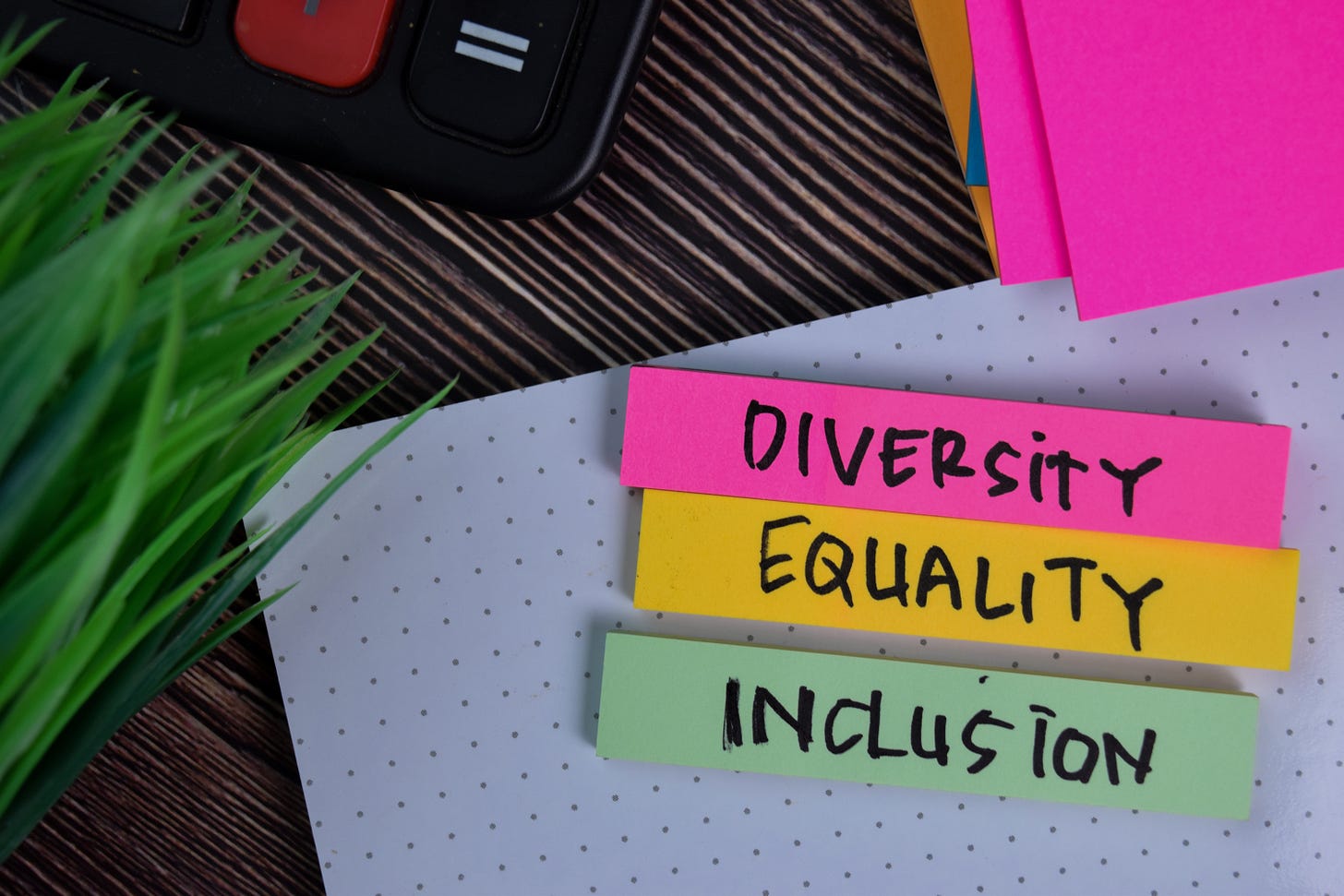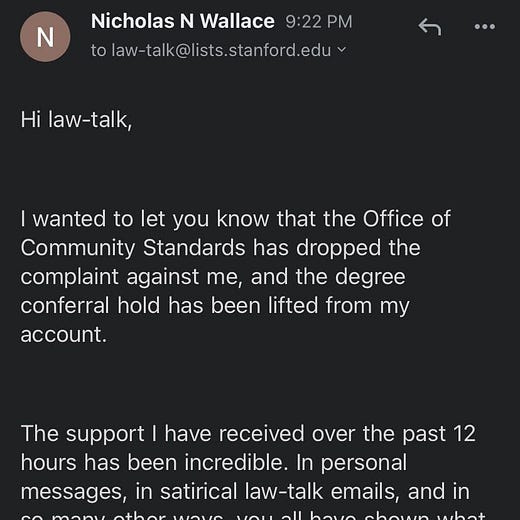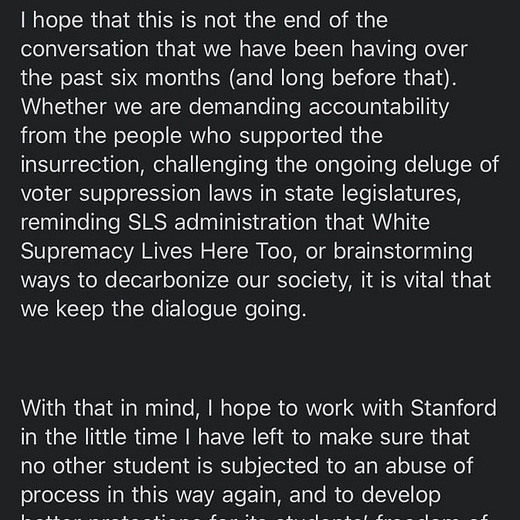E-Pluribus | June 3, 2021
Twitter’s two minutes of hate, does diversity truly help learning, and the case for banning CRT.
A round up of the latest and best writing and musings on the rise of illiberalism in the public discourse:
Kat Rosenfield: Ellie Kemper and Twitter’s Two Minutes Hate
It’s difficult to think of a social media platform that more users love to hate, and perhaps one reason for that is that Twitter itself seems to encourage people who love to hate. Kat Rosenfield writes about the case of Ellie Kemper and the silly pile-on that Twitter’s algorithms and features helped to promote.
What matters is not the details of these stories, the illiterate idiot’s game of internet telephone by which a normal American woman is suddenly accused of having been a ‘KKK princess’. What matters is the familiar shape they take and the familiar source from whence they spring.
What matters is the Twitter sidebar.
[…]
Orwellian dystopian analogies come pretty cheap these days, but this one is too obvious not to point out — only instead of Two Minutes Hate, it’s a 24-hour buffet. Twitter’s sidebar points to people who have been declared fair game for punching and the mob gleefully piles on. It’s not just that these stories are born on the website; it’s that Twitter actively nurtures them, promotes them and throws their scapegoats to the wolves. For a platform that likes to style itself as a place that takes harassment and abuse seriously, it’s especially ironic: Twitter will protect certain high-profile users who complain about abuse, but it also foments drama on purpose and by design, like the high-school teacher who plays favorites with the cool kids and always happens to be looking the other way when some unpopular schlub is being tormented right under his nose.
Read it all here.
John McWhorter: Diversity is great but it doesn't make students learn better
We here at Pluribus have spent time exploring the concept of “diversity” and what kind of diversity would truly benefit society. John McWhorter returns to the topic in the context of affirmative action as well as other governmental, educational and corporate policies to argue that there’s little evidence that diversity achieves its ostensible goals.
So, to review – I favor adjusting standards in acknowledgment of (i.e. “Affirming” my awareness of) disadvantage. However, I think it is obsolete to adjust standards for middle-class and affluent black kids. It made sense for about twenty years but it was a strategy that should have been applied like chemotherapy, which does massive harm amidst what it does right. Open-ended preferences on the basis of skin color are condescending. (And yes, even amidst the lingering of systemic racist inequities.) They make it less urgent for those kids to master getting the tippy-top grades and scores other kids do, because they don’t have to. They will always seem unfair to white and Asian onlookers no matter how crafty the justifications are (How do I know this? From the fact that it’s been that way for 40 years. What better arguments are there going to be?).
It happens nationwide every spring. The white seniors start getting acceptances from a few of the top universities they applied to; their black friends are ardently courted by all of the ones they applied to. That’s been standard now for decades, and it’s time to stop blinking a little and looking off into the distance about it and mumbling that it’s “complicated,” or mouthing that it’s okay because middle class and affluent black kids are valuable in how “diverse” they are.
“Diversity” has become one of those magic words. When the Harvard case comes up, we will watch endless people in business clothes talking about the value of diversity, with the word hitting our brain in the same way with the same narcotic warmth as blueberry muffin, love, and Hill Street Blues. But the reality is that there is no self-standing argument that diversity makes people learn better – just as most of us have always suspected. Diversity matters some – such that it should be considered when assembling a class from among cohorts with truly equal qualifications. But as a rationale for lowering standards for black and Latino kids, it’s time to let it go.
Read the whole thing.
Daniel Henninger: Banning Critical Race Theory
Conservatives generally oppose the concept of Critical Race Theory (CRT) and worry about the impact it is having, particularly in education, but there is no conservative consensus on how to respond to CRT without violating principles of free expression. Daniel Henninger of The Wall Street Journal writes that the way CRT advocates have insinuated CRT into public education amounts to an imposition of views rather than an exercise in academic freedom.
After last summer’s protests, it was clear there would be a public reconsideration of racial issues in the U.S. Within six months, it was off the rails.
Parents of children at public and private schools across the country discovered that administrators, adopting the pre-Floyd arguments of the group Black Lives Matter, had changed the schools’ curricula to give priority to racial issues. What many parents thought had begun as a good-faith discussion about race suddenly appeared to be an ideological fait accompli. No debate, no discussion. It just showed up.
Reactions erupted in, of all places, two liberal private schools in New York City—Dalton and Grace Church. An anonymous open letter from Dalton parents said, “Every class this year has had an obsessive focus on race and identity, ‘racist cop’ reenactments in science, ‘decentering whiteness’ in art class, learning about white supremacy and sexuality in health class.”
[…]
The problem with progressives is that in pursuing their politics they always overreach. Then, after going too far, they cover themselves with bad-faith euphemisms. Proponents of race-based curricula say they simply want to have “conversations” about race. They don’t want a conversation. Schools were imposing these novel views and eliminating traditional historical accounts.
Read it all at The Wall Street Journal.
Around Twitter
Mark Hemingway weighs in on the Ellie Kemper kerfuffle mentioned in the first item in the round-up above. Click through for the whole thread:
Stanford University cracks down on… satire?
The latest on the Stanford story:
An amazing coincidence in Hong Kong:
The fallout from the media’s dismissal of the Wuhan COVID lab leak theory continues. Here’s Ben Smith and Josh Rogin:
Want to receive our newsletters straight to your inbox? Click below to subscribe to PLURIBUS:
Click below to follow us on Twitter:
Share PLURIBUS with your contacts:













